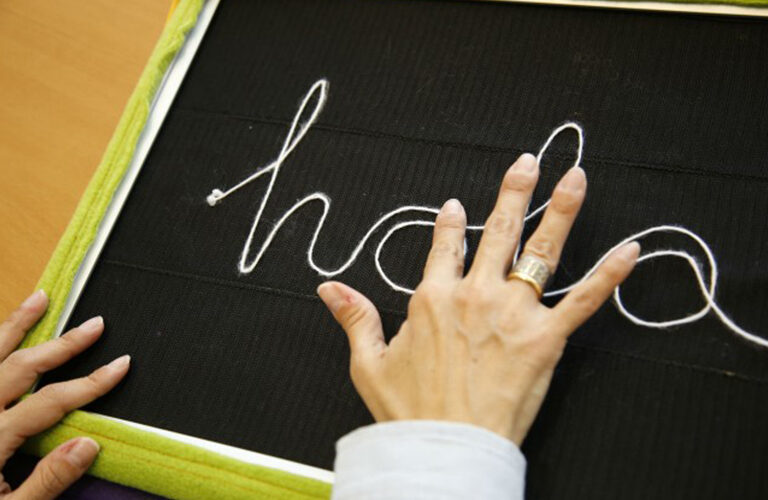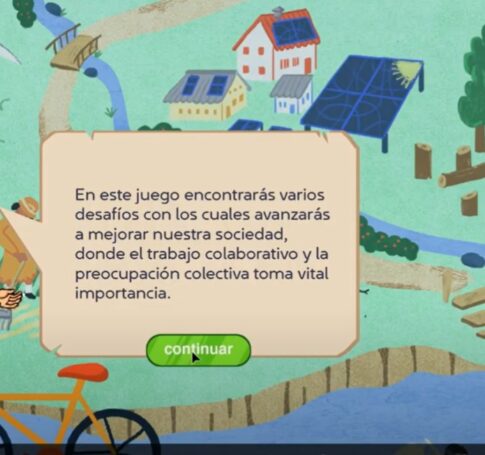
DESCRIPTION
This inclusive teaching device consists of a 3D-printed pencil containing a spool of wool that students use to trace different shapes on a black Velcro adhesive sheet where they can be recognized by touch. Küwü, meaning hand in Mapudungun, was created by the team of researchers at the Center for Development of Inclusive Technologies (Cedeti UC) after participating in a multidisciplinary basal project carried out by the UC.
The device was initially designed for blind and low vision students to create 2D images with automatic feedback from their own creations, but it also allows students to develop other skills such as creative potential, visuospatial coordination, and fine motor skills. It is a fun, inclusive, low-cost tool that provides an opportunity for blind and sighted people to interact.
PROBLEM ADDRESSED
How to enhance creativity and promote the inclusion of blind people in a risk-free, independent, real-time setting.
“The problem with the material given to blind people is that they cannot interact in real time with their own drawings. Today they are based on models. For example, if a blind person wants to draw something, they will have to wait for someone else to appear and give them a mold of what they created. They cannot do it alone,” explained Martín Santa Cruz, one of the creators of Küwü, in charge of Sales and Marketing at Cedeti UC.
SOLUTION
This device allows blind people to create their own drawings with automatic feedback from their creations. It is an inclusive, low-risk, fun and inexpensive device that provides an opportunity for blind and sighted people to interact.
BENEFICIARIES
- San Alberto Hurtado School (Chile)
- Colegio Santa Lucía (Chile)
- Helen Keller School (Chile)
- Overbrook College of Philadelphia (USA)
- Carroll Foundation for the Blind of Boston (USA)
- Thirty-five devices have been sent out for testing at the most important institutions for the blind in Chile, the United States, Spain and Germany.
BACKGROUND
- 2017 – Küwü won the fourth version of the Edulab Contest of the UC Innovation in Education Laboratory, an area that in one semester supported the project with the testing of the prototype and its corresponding adjustments.
- 2018 – UC Global Program of the UC Office of Transfer and Development, which allowed them to travel to validate their project in the USA.
- 2020 – Project Küwü is eligible for Hubtec’s Hubtecgo program, which seeks to enhance the technology transfer of knowledge at its partner universities.



